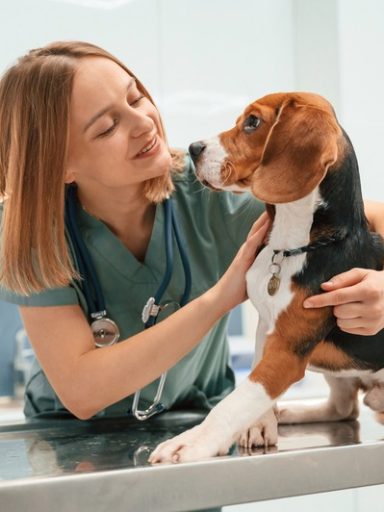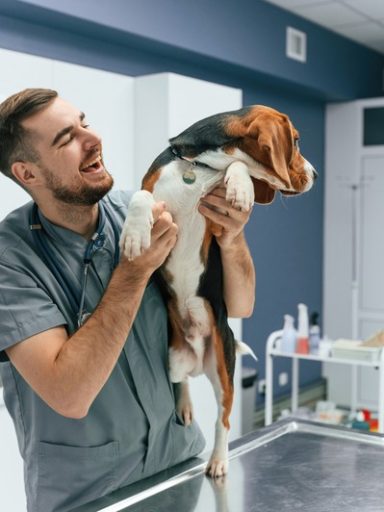In the life of a pet owner, few things are as stressful as facing a pet emergency. These incidents often occur out of the blue, leaving you scrambling for the right course of action. By knowing what the most common pet emergencies are, you can be better prepared to take immediate and effective steps to help your furry friend. Let’s walk into the critical information that every pet owner should know, ensuring your pet receives the care they need when they need it the most.
1. Swallowing Foreign Objects
Pets, especially young ones, are naturally curious and may end up swallowing objects that can cause harm. Whether it’s a small toy, piece of string, or even a bone, swallowed objects can block or damage their internal organs, leading to severe health complications. Watch for signs such as sudden retching, lethargy, or refusal to eat, and take action by consulting your vet immediately.
2. Accidents and Trauma
Accidents can happen in the blink of an eye. Whether it’s a car accident, a fall from a height, or a fight with another animal, trauma can lead to broken bones, internal injuries, or even severe bleeding. If you suspect your pet has experienced trauma, it’s crucial to keep them calm and immobile if possible and seek veterinary care urgently.
3. Poisoning
Many common household items and plants are toxic to pets. From chocolate and grapes to lilies and antifreeze, poisoning is a frequent emergency that requires immediate attention. Symptoms of poisoning can vary widely but may include vomiting, diarrhea, excessive drooling, or seizures. If you suspect your pet has ingested something toxic, contact your vet or a poison control center straight away.
4. Difficulty Breathing
Difficulty breathing is a sign that your pet needs urgent veterinary attention. This could be due to an allergic reaction, heart disease, pneumonia, or a foreign object lodged in the throat. Look out for symptoms like rapid breathing, coughing, or a blue tinge to the gums and get to a vet immediately.
5. Seizures
Seizures in pets can stem from various causes, including epilepsy, poisoning, or brain tumors. While witnessing your pet having a seizure can be terrifying, it’s essential to keep them away from hard objects to prevent injury. Note the seizure’s duration and intensity before swiftly seeking veterinary help.
6. Heat Strokes
Heat stroke is a critical emergency in pets exposed to high temperatures, common in hot climates or environments like cars without water or shade. Symptoms include panting, drooling, lethargy, and collapse. Immediate gradual cooling with lukewarm water and veterinary care are crucial.
7. Bloat
Bloat, or Gastric Dilation-Volvulus, is a deadly emergency mainly affecting large dogs, causing the stomach to twist and cut off organ blood flow. Symptoms include a swollen abdomen and rapid breathing. Immediate veterinary intervention is crucial for survival; self-treatment is dangerous.
Being informed is your best defense against pet emergencies. Resources are available to help you understand how to respond in various emergency scenarios. Don’t wait until an emergency happens; click here to find out more about how to protect your pet. Educate yourself on the signs of common emergencies and the best responses to ensure you can act swiftly and effectively.
How to Handle a Pet Emergency
When faced with an emergency, staying calm is pivotal. Your pet can sense your anxiety, which may heighten their stress. Ensure their safety and yours by moving them gently to a secure location and contacting a veterinarian immediately. It’s also beneficial to have a pet first aid kit and the number for your local emergency pet clinic handy for such situations.
If your pet is facing a non-urgent but concerning health issues, like unexplained weight loss, recurrent vomiting, or lethargy, searching for veterinary internal medicine services may be your next step. These specialists handle a wide range of internal health problems, providing comprehensive care that can significantly improve your pet’s well-being. Don’t hesitate to reach out for expert help when your pet’s health is in question.
Preventing Pet Emergencies
-
Keep hazardous substances out of reach.
-
Supervise your pet as much as possible.
-
Regular veterinary check-ups can help identify potential health issues before they become emergencies.
-
Train your pet to follow basic commands to prevent accidents.
When planning a trip away from home, ensuring your pet’s safety and comfort while you’re gone is essential. Opting for a service offering local pet boarding in Port Jefferson for dogs ensures your furry companion is well cared for in a safe, nurturing environment. Research well and choose a facility that meets your pet’s specific needs to ensure their happiness and safety.
Final Thoughts
As pet owners, our pets’ health and well-being are always a top priority. Understanding the most common pet emergencies and how to respond to them is crucial in ensuring we’re providing the best possible care for our furry family members. By being prepared and informed, we can make a significant difference in the outcome of a pet emergency. Remember, when in doubt, always seek the advice and assistance of a professional veterinarian.





